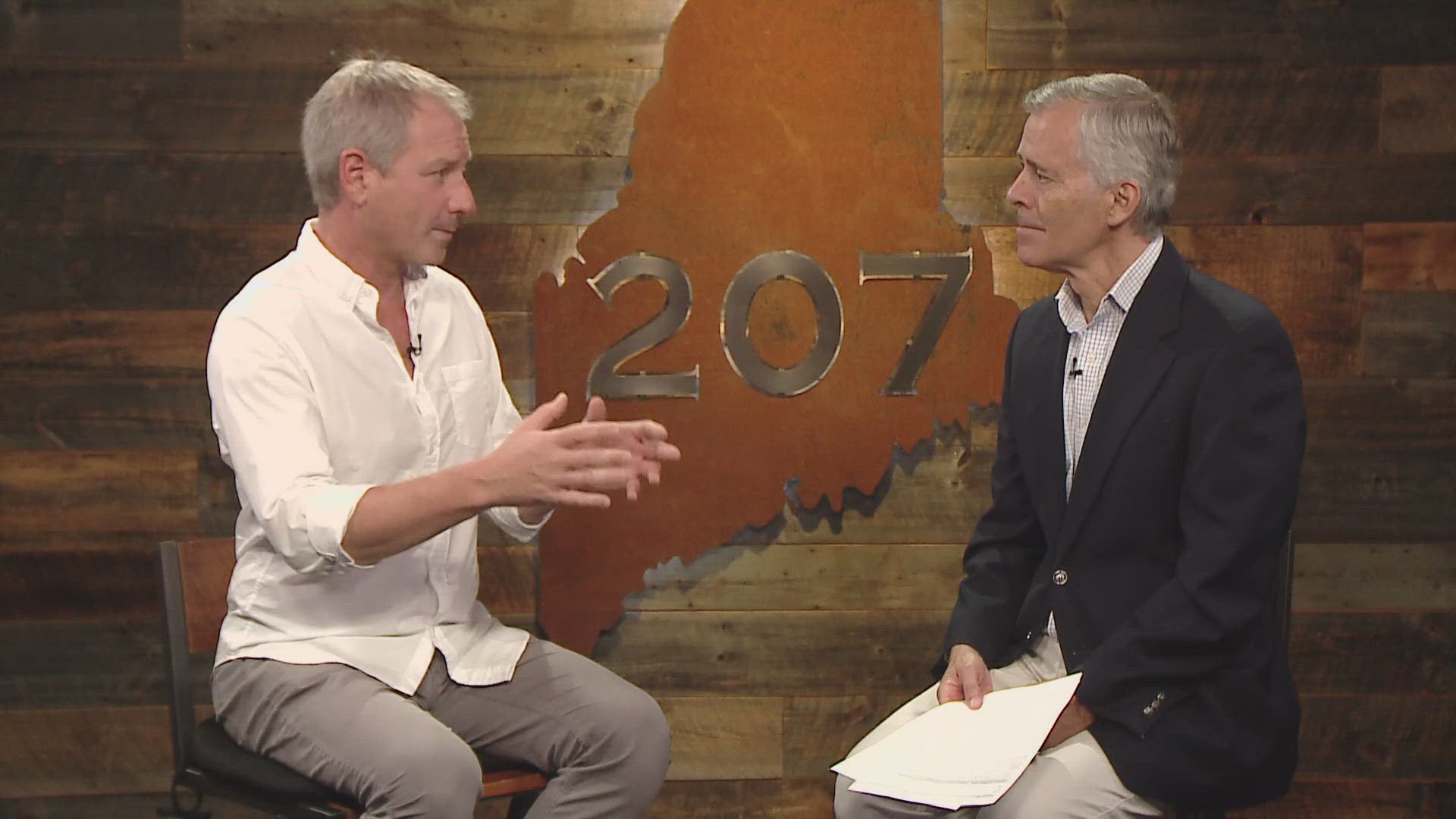PORTLAND, Maine — Here’s a question worth pondering. Who has the better bedside manner—your doctor or a device powered by artificial intelligence?
In a surprising number of cases, patients say that AI is more comforting than a human physician. Actually, given the state of American healthcare, maybe that’s not surprising.
That’s one of the nuggets that 207’s tech guy, Rich Brooks of Flyte New Media in Portland, came across while looking into the ways that AI is making INROADS in medicine. Here are the talking points Rich provided about some of the futuristic developments that are already here.
207: How is AI being used to improve healthcare today?
Rich: One big burden in healthcare is the amount of administrative tasks, something that AI is very good at. We're already seeing some amazing use cases.
One is called ambient documentation, where AI listens to the conversation between doctors and patients and acts as a medical scribe in real-time, so nothing is lost.
Another is autonomous coding, where there is currently a critical shortage of professionals who are required to certify and assign thousands of medical codes to review clinical documentation and prepare billing claims.
Using these two technologies together, physicians are seeing a savings of 3 hours a day in administrative tasks. That's more time for patients and less chance of burnout.
Patients also get seen by specialists faster when AI is being used. Currently, only about half of faxed referrals result in a scheduled appointment. When AI is introduced, this critical work is automated. One major healthcare provider that implemented AI now processes 90% of referrals without human intervention, leading to better patient service and cost savings.
207: But how does AI compare to doctors?
Rich: AI usually equals or even outperforms physicians when it comes to diagnostic accuracy. Study after study, across a wide range of specialties, shows AI outperforming doctors, as documented in the Journal of the American Medical Association.
While some people might be concerned about the lack of humanity when it comes to AI's bedside manner, a recent study had medical professionals rate the written answers of both doctors and AI to patient questions, and 79% of the time, these medical professionals said AI did a better job in accurately answering questions, the depth of their responses, and interestingly, the empathy shown to patients.
However, when AI and humans work together we see the best results. In one study, researchers discovered AI had an almost 80 percent accuracy rate when differentiating between healthy and cancerous tissue. When paired with a human medical provider, precision was just about 100%.
207: It can't be all rosy. What are some of the concerns when it comes to AI & healthcare?
Rich: Bias, because AI is trained on datasets that are based on previous treatments and outcomes, and much more data has been collected on white people, it has been shown to make erroneous recommendations when it comes to underserved populations.
There's also concern around hallucinations, where AI "makes stuff up." While that can be occasionally funny in day-to-day usage, you can see how this could quickly lead to tragic outcomes when it comes to healthcare.
Another big concern is data set poisoning, which is a type of cyberattack where bad data is purposefully injected into training data for AI. As you can imagine, that could have disastrous results if there's no human oversight.
207: Where do you see all this going?
Rich: Because of the opportunity for better accuracy, reduction of healthcare provider burnout, and potentially huge cost savings, I believe healthcare organizations will continue to invest in integrating AI in all aspects of healthcare from diagnosis to treatment, and administrative tasks.
While some doctors and even some patients might be worried, AI is just another tool that we can use to improve the health of people across the world.

